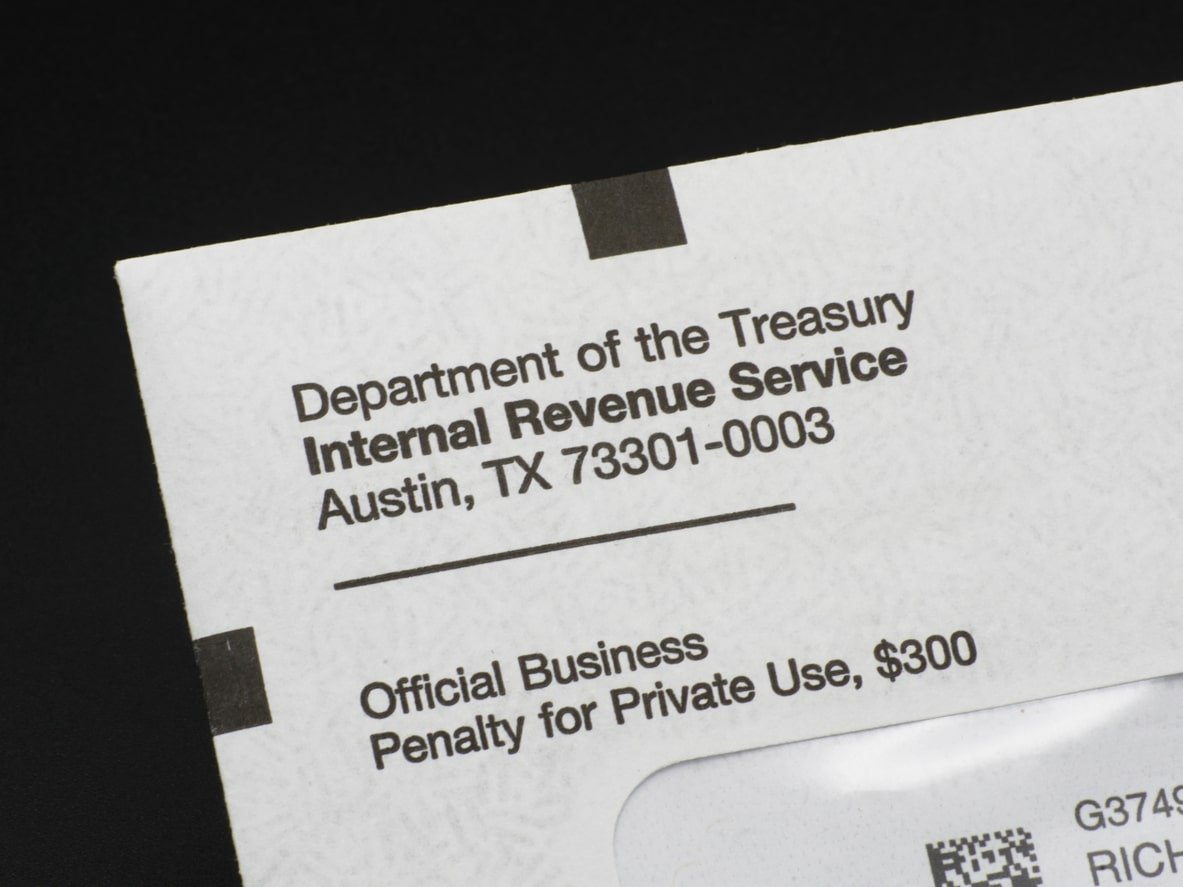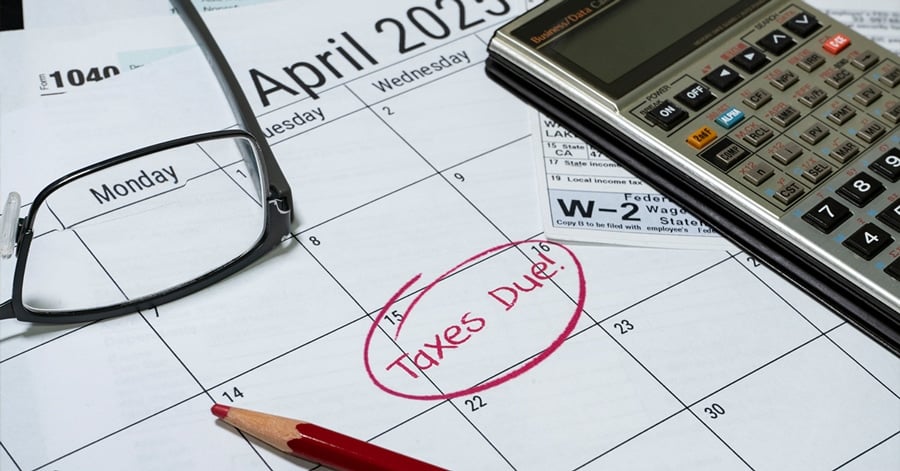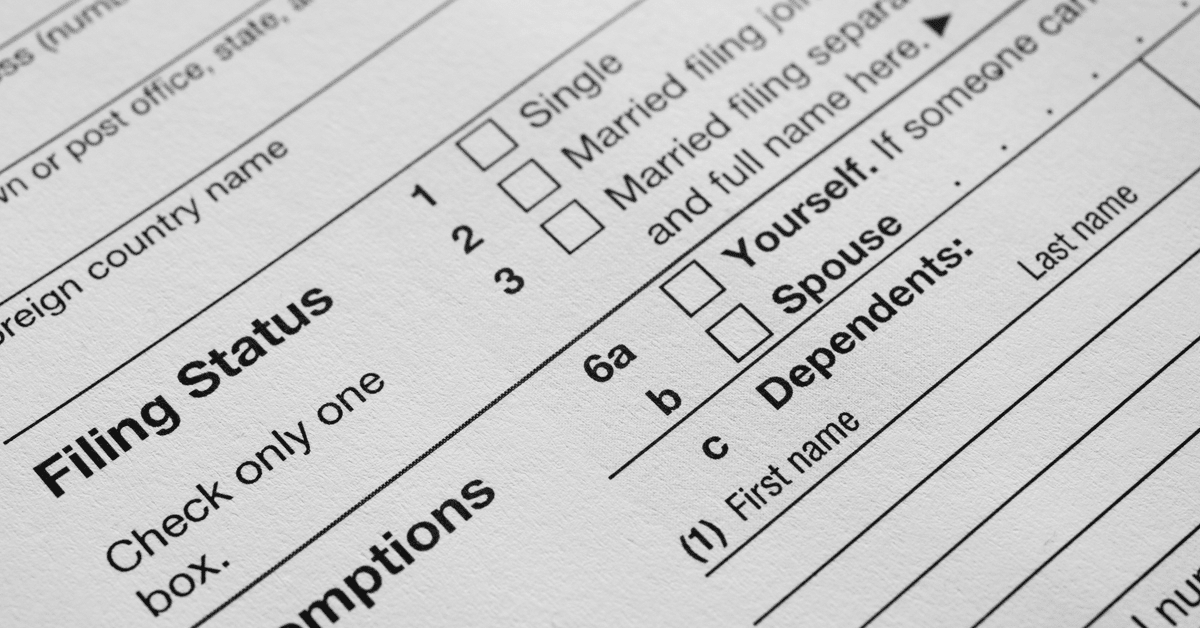
Tax season is that dreaded time of year when you must buckle down and do tedious paperwork. Accurately reporting every type of income can be overwhelming—everything from wages and business earnings to dividends, gambling winnings, and social security benefits has to be accounted for.
Preparation for potential IRS audits is crucial. Planning and organizing documentation can significantly improve your audit readiness and mitigate risks associated with reporting net losses or consistently filing tax returns late.
The only thing worse than filing your taxes is finally breathing a sigh of relief only to see that anxiety-inducing letter in the mail—an audit from the Internal Revenue Service.
The chances of getting audited by the IRS may seem relatively low, but it can still happen to you, regardless of your income level. 0.2% of individual tax returns filed in 2020 were audited—about 1 in 500. Getting audited by the IRS is nerve-wracking enough, but what happens if you get audited and don’t have receipts to back up your deductions or expenses?
Knowing what to do is crucial if you’re missing documentation during an audit. When you encounter roadblocks, a trusted tax professional on your side will make all the difference in navigating the audit and protecting your financial future.
Understanding the IRS Audit Process
Many taxpayers find the IRS audit process daunting. Understanding what triggers an audit, who the IRS targets, and the role of IRS auditors can help alleviate some of the anxiety and uncertainty.
IRS audits can be conducted in various formats, such as by mail, in-person at IRS offices, or on-site at a taxpayer’s business.
What Triggers an IRS Audit?
The IRS uses computer algorithms and human analysis to select tax returns for audit. Some common triggers include:
- High-income earners: The more you earn, the more likely you will be audited.
- Large deductions or credits: Significant deductions or credits can raise red flags.
- Complex tax returns: The more complicated your tax return, the higher the chance of an audit.
- Businesses with multiple entities: Several entities can attract IRS scrutiny.
- Businesses with a history of non-compliance: Past compliance issues can lead to future audits.
- Inconsistencies in tax returns: Discrepancies between reported income and expenses can trigger an audit.
- Failure to report income or pay taxes: Not reporting all your income or failing to pay taxes is a surefire way to get audited.
- Comparison to similar returns: Tax returns can be audited based on a comparison to a sampling of similar returns by statistical algorithms. This process aims to identify discrepancies or unusual claims by evaluating how one return measures up against established standards derived from similar returns.
Who Does the IRS Target for an Audit?
The IRS targets a wide range of taxpayers for audit, including:
- High-income earners: Those with substantial income are more likely to be audited.
- Small business owners: Small businesses often face audits due to the complexity of their tax returns.
- Self-employed individuals: The self-employed are scrutinized more closely because of the potential for unreported income.
- Taxpayers with complex tax returns: The more intricate your tax return, the more likely it is to be audited.
- Taxpayers with a history of non-compliance: If you’ve had issues with compliance in the past, you’re more likely to be audited again.
- Taxpayers who have been audited in the past: Previous audits can increase the likelihood of future audits.
- Individual income tax returns: While the percentage of individual income tax returns audited is low, factors such as high income, complex tax situations, or past non-compliance can increase the likelihood of being audited.
The Role of IRS Auditors in the Audit Process
IRS auditors play a crucial role in the audit process. Their primary responsibility is to review tax returns and financial records to ensure accuracy and compliance with tax laws. IRS auditors may:
- Review tax returns and financial records: They meticulously examine your tax returns and financial records.
- Conduct interviews with taxpayers and their representatives: Auditors may interview you or your tax professional to gather more information.
- Request additional documentation and information: They might ask for more documents to support your claims.
- Adjust tax returns: Auditors can adjust your returns if discrepancies are found.
- Assess penalties and interest: Auditors can impose penalties and interest if errors or non-compliance are discovered.
Receiving an Audit Notice
Receiving an audit notice from the IRS can be a stressful experience, but it’s essential to understand the process and your rights as a taxpayer. The notice will typically inform you of the type of audit, the tax year being audited, and the specific issues being examined. It’s crucial to respond promptly to the notice and seek the advice of a tax professional, such as a certified public accountant (CPA) or tax attorney, to ensure you’re adequately prepared for the audit process. The IRS auditors will review your tax return, and you may need to provide additional documentation, such as receipts, invoices, and other proof of income and expenses.
What Happens if You Get Audited & Don’t Have a Receipt?
Am I in trouble if I get audited? It’s a common question, especially if you don’t have the IRS-requested receipts. While it can be stressful, it doesn’t necessarily mean you’re in big trouble. Here’s what could happen if you’re being audited and don’t have the receipts the IRS asked for:
- The IRS may deny the deductions you claimed, meaning you owe more taxes. Disallowed deductions can increase your taxable income, raising your overall tax liability.
- They could charge you extra taxes, penalties, and interest if you can’t prove your claims.
- In more severe cases, you could face penalties for negligence or even accusations of tax fraud.
Maintaining thorough documentation, including invoices and bills, is crucial to support the accuracy of your tax returns and mitigate the risks associated with potential audits.
But don’t panic—missing receipts don’t always mean trouble. The IRS often accepts other forms of proof, and with the right strategy, you can still make your case.
Does the IRS Verify Receipts During an Audit?
Yes, the IRS verifies receipts during an audit to ensure the accuracy of your income tax return claims. They can request documentation to back up deductions or expenses. The IRS may accept alternative documentation if you don’t have the original receipts.
Alternative Documentation You Can Use, Including Credit Card Statements
The IRS recognizes that receipts can be lost or misplaced and may accept other forms of evidence to verify your expenses. Proper documentation is crucial for verifying business expenses during an audit. These alternatives include:
- Bank and credit card statements showing transactions.
- Canceled checks.
- Vendor invoices or replacement receipts.
- Expense reports or business calendars.
- Email confirmations from vendors or service providers.
Maintaining thorough records, including other documentation, is essential for tax compliance and preparation for potential audits. This includes supplementary materials that can clarify your business’s financial activities, helping to mitigate audit risks and support deductions on tax returns.
This documentation lets you demonstrate your expenses even if the original receipts are missing.
Using the Cohan Rule When Receipts Are Gone
You can use the Cohan Rule to estimate certain expenses if you’re missing receipts. While this can help save your deductions, there are some limits:
- The IRS will accept reasonable estimates but might reduce the amounts to standard levels.
- The expenses need to make sense for your type of work or business.
Proper preparation is crucial for cash-intensive businesses. It helps maintain organized records and minimizes stress during audits. Being well-prepared can ensure a smoother process when facing increased scrutiny from tax authorities.
The tax code allows for using reasonable estimates but requires supporting evidence.
Although the Cohan Rule can be helpful, providing as much supporting evidence as possible is essential to strengthen your case.
Preparing for an IRS Tax Audit
Preparing for an IRS tax audit requires careful attention to detail and a thorough understanding of the process. The first step is to gather all relevant documentation, including tax returns, receipts, invoices, and other records that support your income and expenses. It’s also essential to understand the types of audits, including correspondence, office, and field audits, and to know your rights as a taxpayer. A tax professional can help you navigate the process and ensure you’re adequately prepared. Additionally, it’s crucial to be aware of common red flags that may trigger an audit, such as math mistakes, discrepancies in income reporting, and certain deductions. By being proactive and seeking professional advice, you can minimize the risk of an audit and ensure a smooth process if you are audited.
The Role of a Tax Professional
A tax professional, such as a tax attorney or certified public accountant (CPA), can play a crucial role in helping you survive an IRS tax audit. They can provide expert advice and guidance throughout the audit process, ensuring you’re adequately prepared and represented. A tax professional can help you understand the audit notice, gather required documentation, and respond to the IRS’s requests. They can also represent you in meetings with the IRS auditors and help negotiate any disputes or issues that may arise. Furthermore, a tax professional can help you understand your rights as a taxpayer and ensure you receive professional treatment throughout the process. By hiring a tax professional, you can minimize the stress and uncertainty of an audit and ensure the best possible outcome.
Responding to an Audit
I want to point out that responding to an audit requires prompt attention and careful consideration. Understanding how to respond to tax audit letters and what to expect during the audit process can help taxpayers navigate this complex process.
During an office exam, taxpayers must answer questions to resolve any issues.
How to Respond to Tax Audit Letters Promptly
I’d appreciate it if you could respond quickly and carefully if you receive a tax audit letter. Here are some steps to follow:
- Please read the letter carefully and understand the audit process. Make sure you fully comprehend what the IRS is asking for.
- Gather all relevant documentation and information: Collect all the necessary documents that support your tax return.
- Respond to the letter within the specified timeframe: Timeliness is crucial in the audit process.
- File appeals within the designated timeframe: If you disagree with the audit findings, ensure you file your appeal promptly to comply with IRS regulations.
- Consider seeking the help of a tax professional or professional: Professional guidance can be invaluable.
- Be prepared to provide additional information and documentation as needed: The IRS may request more information, so be ready to supply it.
By following these steps, you can navigate the audit process more effectively and reduce stress.
Don’t Panic! Start Here If You’re Facing a Tax Audit Without Receipts
When you’re facing an audit without receipts, remember—this situation is more common than you might think, and there are ways to handle it. The key is staying calm, organized, and taking immediate action. Having proper documentation when filing taxes can help avoid issues during an audit. Preparation and strategies are crucial for surviving the audit process, ensuring you manage the experience effectively and minimize stress. You can still navigate the audit process successfully, keeping in mind these 5 simple steps:
- Stay calm—many taxpayers face audits without receipts.
- Gather alternative documentation like bank statements or emails.
- Rebuild records using whatever data you can.
- Prepare explanations for any missing information.
- Hire a professional tax professional to guide you through the process.
Best Practices to Avoid Future Audit Issues
Keeping things organized now can save you a lot of headaches later. Here are some easy ways to stay on top of your record-keeping:
- Digitize your receipts regularly to ensure they’re easily accessible when needed.
- Use accounting software to keep track of expenses and streamline your records.
- Hold onto your records for at least 3 years (or up to 7 years if you report losses or complex deductions).
- Remember the three-year rule: The IRS can audit tax returns and assess additional taxes generally within three years from the filing date. This period can be extended in cases of significant errors or fraud.
Consulting with tax professionals can be crucial, especially if you must appeal audit findings in tax court.
By staying organized and having everything in place, you’ll feel much more relaxed come tax time and be ready if an audit ever comes your way.
After the Tax Audit
After the tax audit, you’ll receive an audit report outlining the findings and any additional taxes owed. If you agree with the report, you must sign and return the agreement form and pay extra taxes, interest, and penalties. If you disagree with the report, you can appeal the decision to the IRS Appeals Office or take your case to tax court. It’s essential to seek the advice of a tax professional to ensure you understand your options and rights. Additionally, you can request a meeting with an IRS manager to discuss any issues or concerns. By being proactive and seeking professional advice, you can ensure a smooth and successful outcome after the tax audit. Remember to keep detailed records of all correspondence and documentation related to the audit, as this can be helpful in case of future audits or disputes.
Take the Guesswork Out of Your IRS Audit
Navigating an IRS audit without receipts is challenging, but ignoring the situation will worsen it. Hiring a professional tax professional, CPA, or Enrolled Agent, like those at Lothamer Tax Resolution, will reduce stress and significantly improve your outcome, providing you with:
- Expert Support: Tax professionals know the ins and outs of IRS audits. They’ll help you gather alternative documents, use strategies like the Cohan Rule, and make sure you’re taking the proper steps.
- Skilled Negotiation: A professional tax professional, CPA, or Enrolled Agent will advocate for you, working to reduce penalties, settle issues, and keep your deductions whenever possible.
- Less Stress: Handling an audit on your own can be tough. Tax professionals handle the back-and-forth with the IRS so that you can focus on other things.
- Peace of Mind: With an experienced team managing your audit, you can trust everything will be done right, lowering the chance of mistakes or missed details.
After receiving an audit result, reviewing the findings and understanding your rights is crucial. This includes knowing your options for disputing an unsatisfactory audit result, such as appeals and seeking professional assistance.
Disallowed deductions or underreported income can result in a new tax bill, increasing your financial liability to the IRS.
Don’t wait until it’s too late—contact Lothamer Tax Resolution today, and let us confidently and expertly guide you through your audit.
Choose Lothamer For Expert Tax Professional Solutions in the Midwest & Great Lakes Regions
Lothamer Tax Resolution is here to free you if you’re facing an IRS audit or struggling with tax debt. With over 45 years of experience, Lothamer’s Enrolled Agents, tax professionals, and CPAs are dedicated to resolving your tax issues. We help clients across the Midwest and Great Lakes regions, including Michigan, Missouri, Indiana, Illinois, Kentucky, Wisconsin, and Ohio, get back on track with their finances.
I think specific tax regulations and resources are particularly relevant for residents of California, making it essential to seek expert advice tailored to your location.
Text or call us at 877-955-9020 to schedule a consultation today and take the first step toward financial freedom.
"*" indicates required fields




